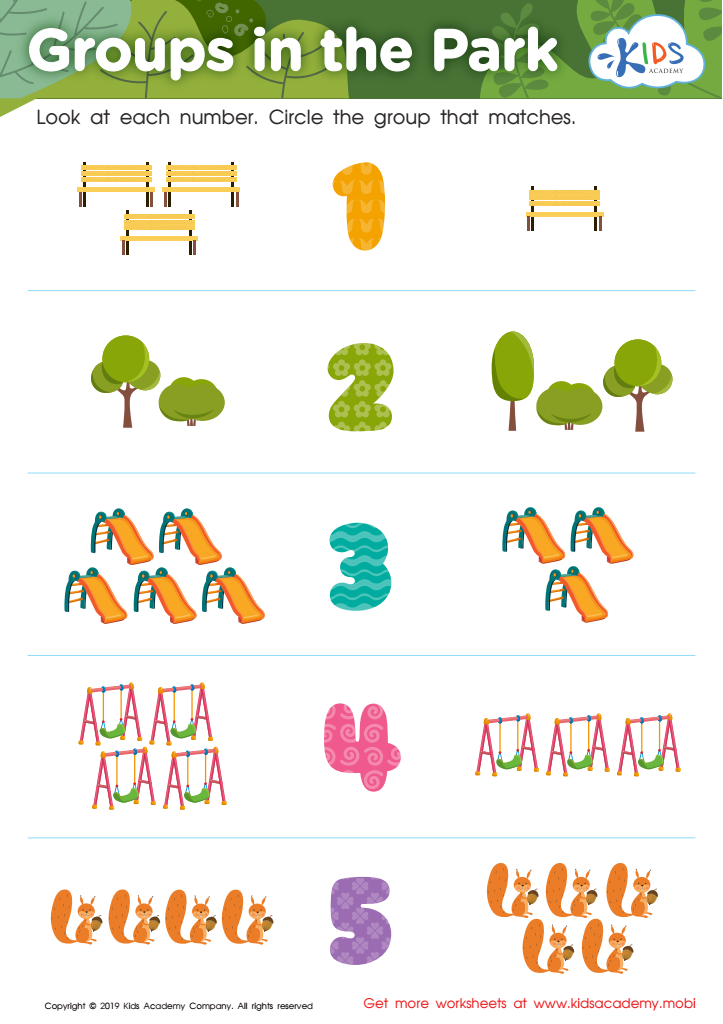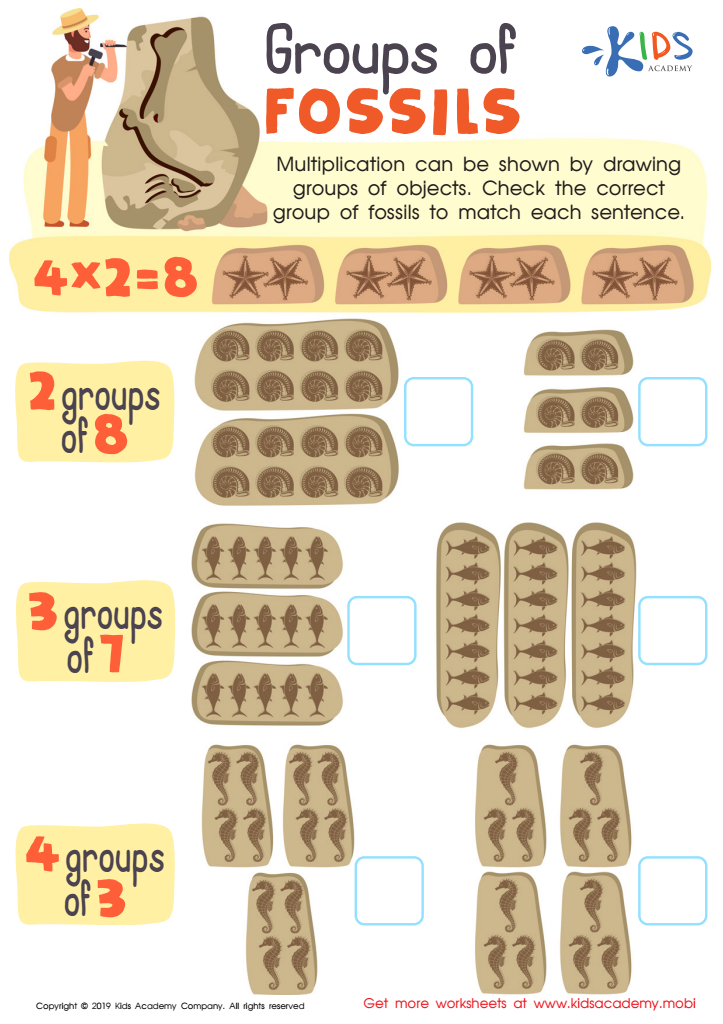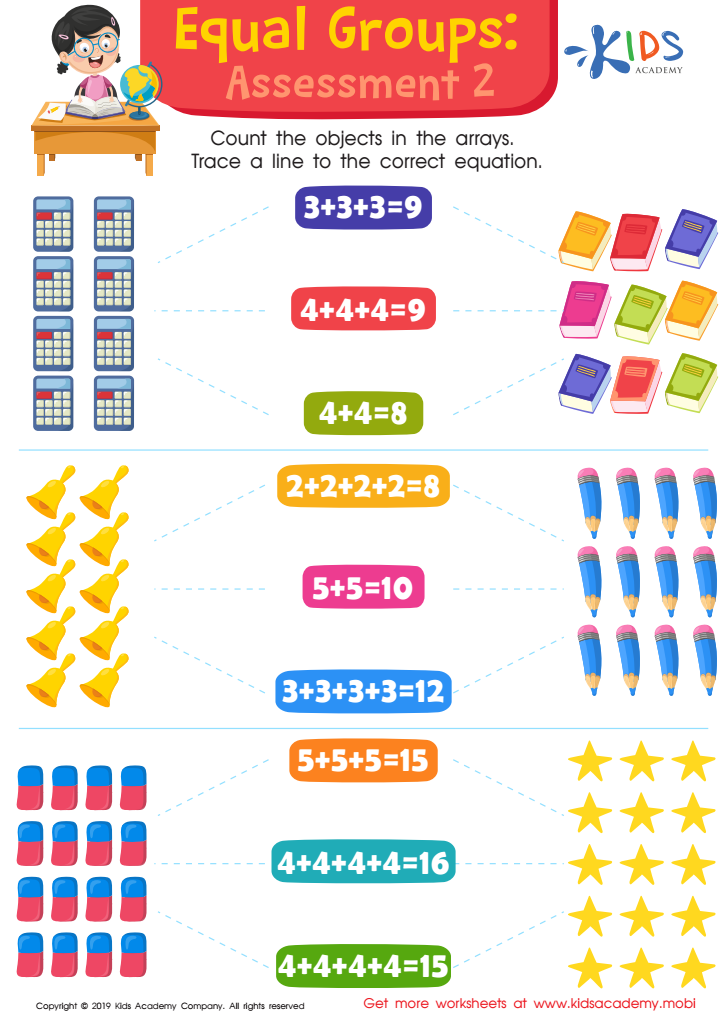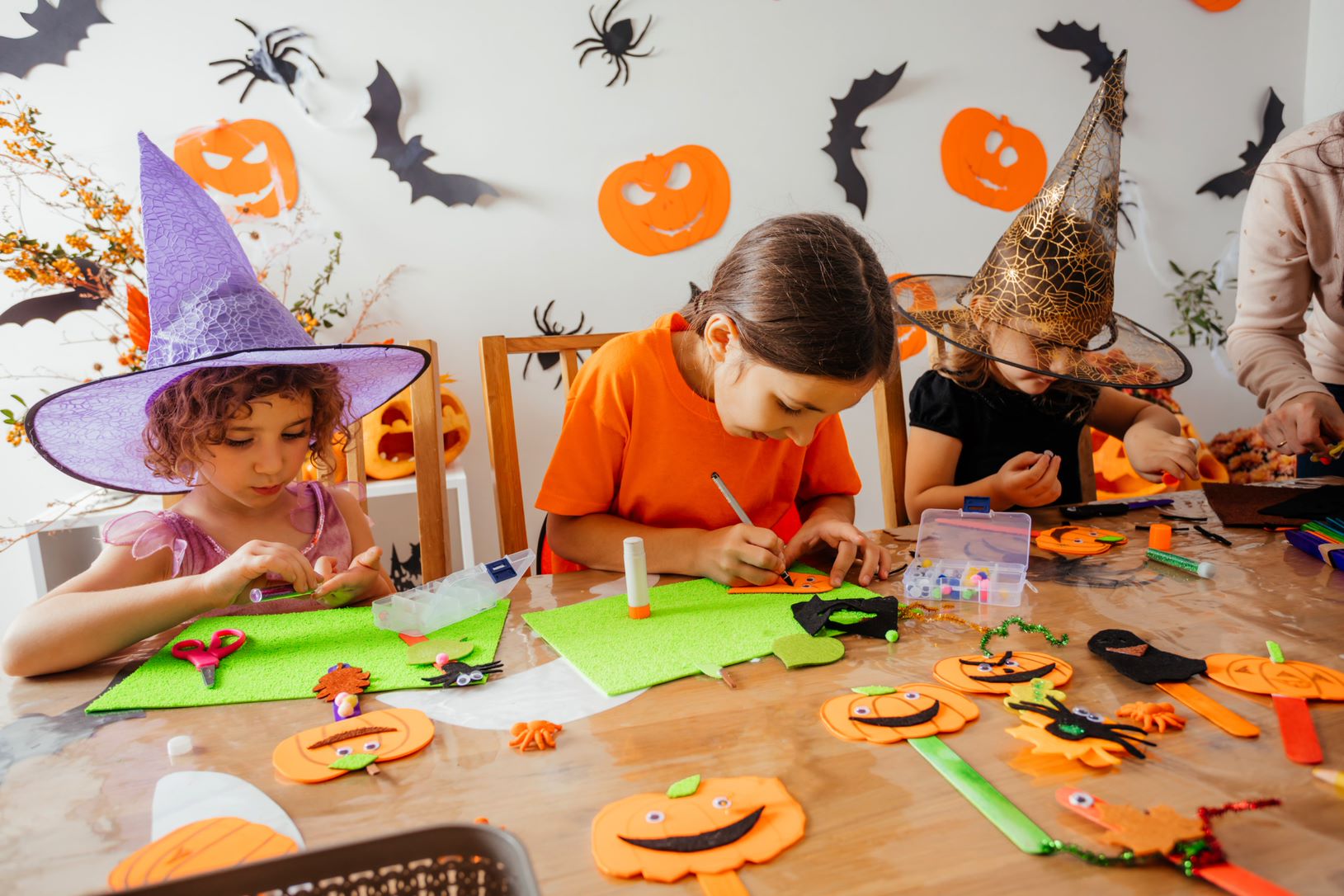Grouping skills Math Worksheets for Ages 3-8
3 filtered results
-
From - To
Explore our engaging "Grouping Skills Math Worksheets" designed for children ages 3-8 to foster foundational math concepts and critical thinking. These worksheets incorporate fun activities that help young learners practice grouping, sorting, and classifying objects, which are essential skills for early mathematics. Content is tailored to build cognitive abilities while enhancing fine motor skills through hands-on exercises. Each worksheet ensures a playful learning experience, helping children grasp the importance of categorizing through interactive and visually appealing designs. Perfect for home or classroom use, our resources support educators and parents in promoting math literacy in a fun and effective way.


Groups in the Park Worksheet


Groups of Fossils Worksheet


Equal Groups: Assessment 2 Worksheet
Grouping skills in math for children aged 3 to 8 are crucial for their cognitive and social development. Teaching young learners to group items enhances their ability to recognize patterns, understand quantity, and develop an early sense of mathematical concepts. These skills lay the foundation for more complex arithmetic operations, such as addition and subtraction.
For parents and teachers, fostering grouping skills can significantly boost a child's confidence and interest in math. It encourages kids to engage in hands-on activities, making learning more interactive and enjoyable. This age is foundational, as children start to make sense of their surroundings, and grouping enables them to categorize objects based on attributes like size, color, or function.
Additionally, grouping promotes critical thinking and problem-solving abilities. By working in groups, children also enhance their social skills, learning to collaborate, communicate, and share ideas with peers. This collaborative learning environment is essential for developing interpersonal skills and emotional intelligence.
In summary, nurturing grouping skills from ages 3 to 8 equips children with vital mathematical and cognitive abilities that support their academic journey and everyday decision-making. It benefits parents and teachers by creating a solid, engaging foundation for future learning experiences.
 Assign to My Students
Assign to My Students







.jpg)








